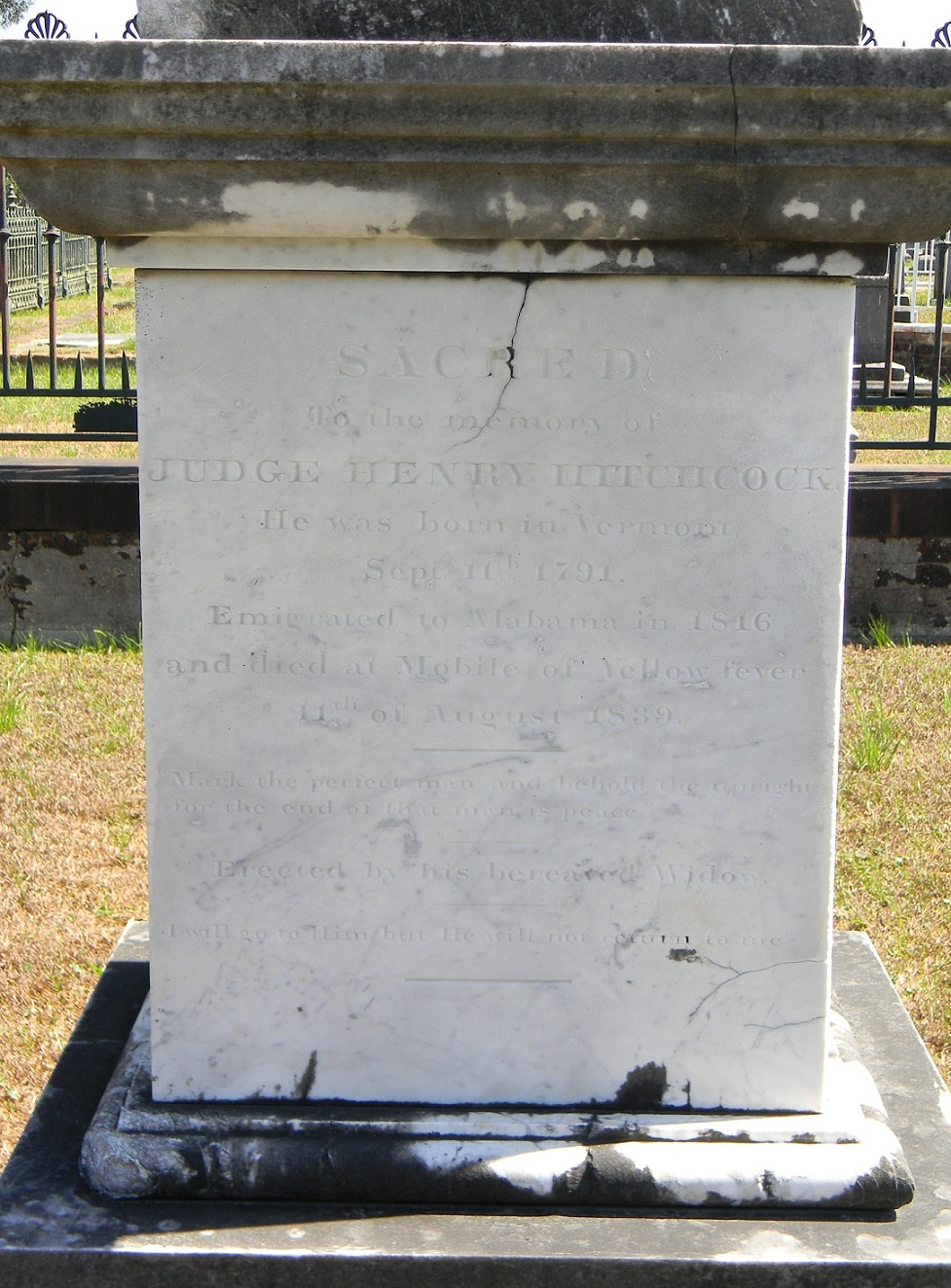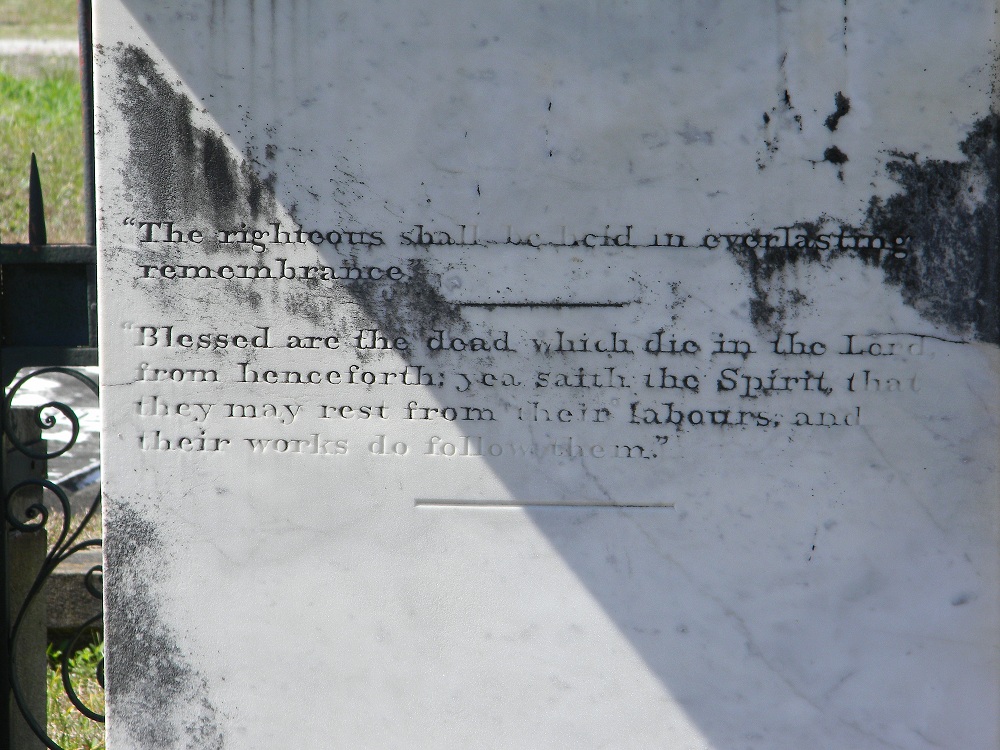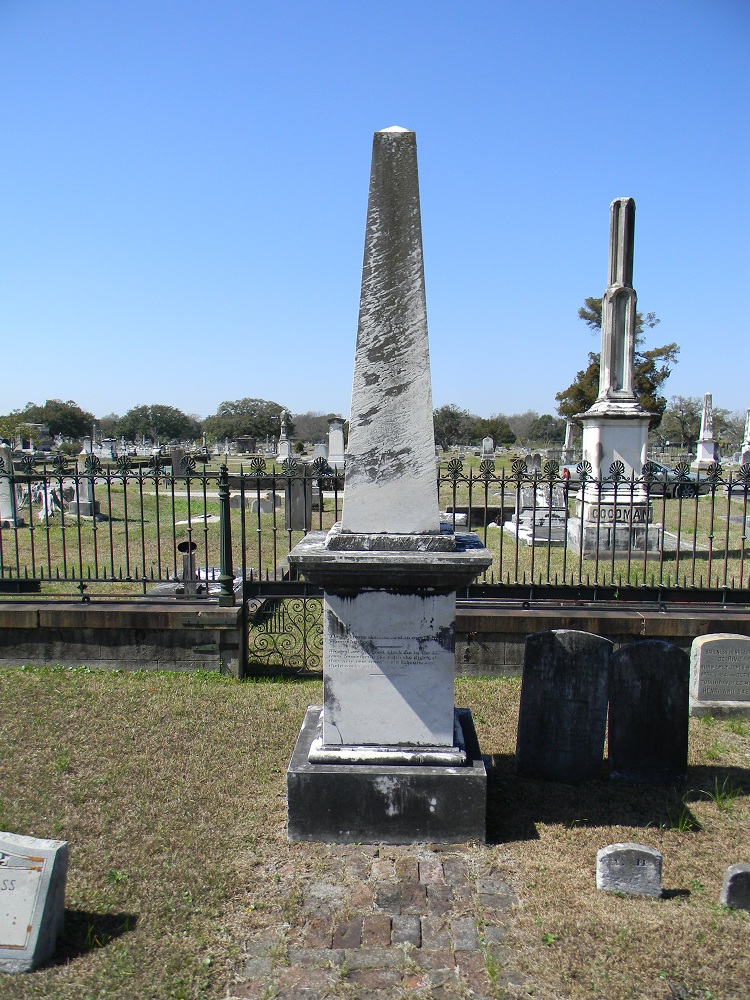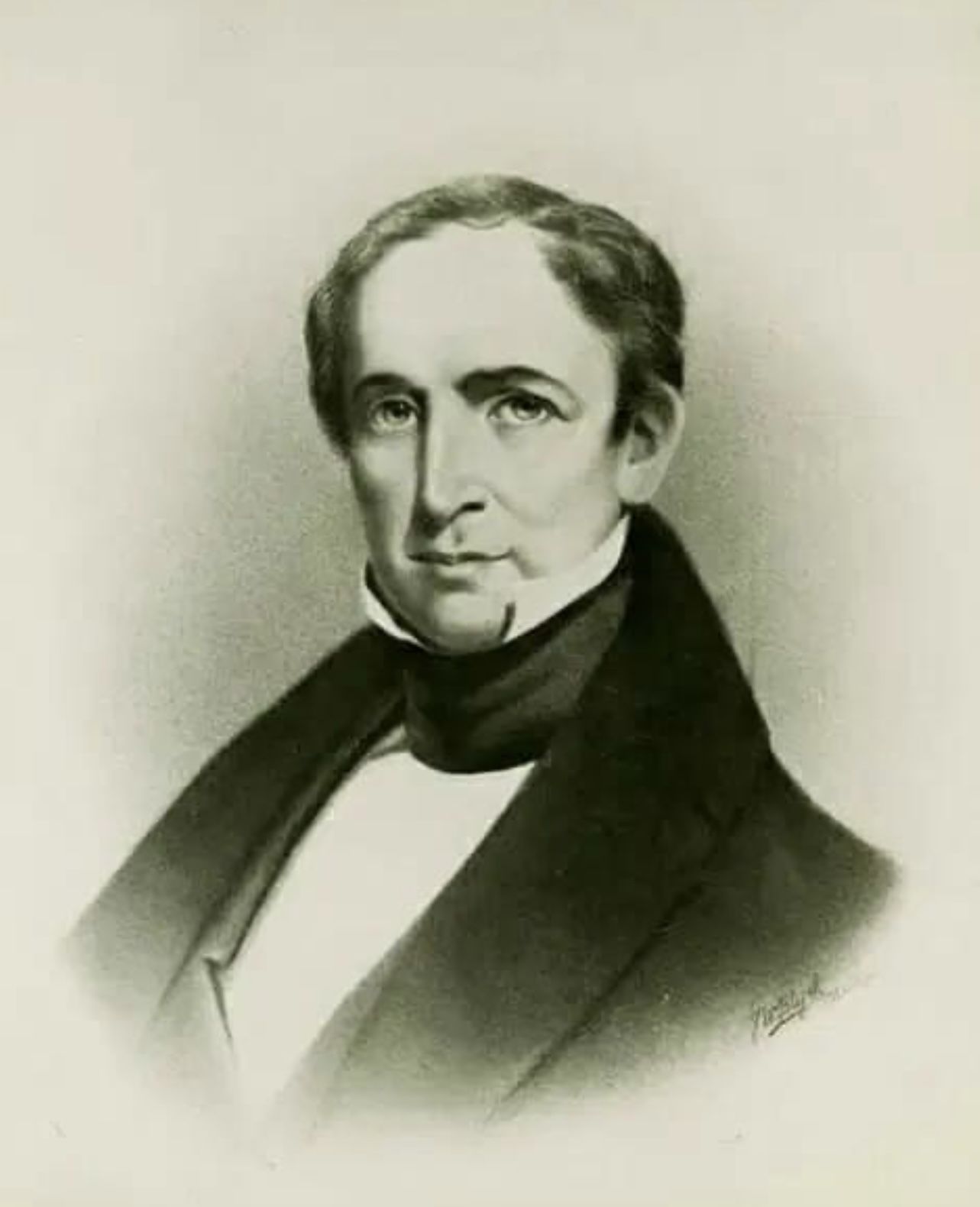He was eventually lured to the growing possibilities emerging in the development of "the southwest frontier" in what is now Southwest Alabama. He journeyed from Vermont to Pennsylvania and then by flat boat down the Ohio and Mississippi rivers to Natchez, Mississippi and then on to Mobile, Alabama, arriving there on January 22, 1816.
Judge Hitchcock became one of the first lawyers to practice in Alabama. Although he waited two months for his first client, he quickly developed into a prominent attorney and a trusted public servant in the Alabama territory. He lived and practiced law in a partnership with future District Judge, William Crawford, in Saint Stephens, Alabama which was the territorial capital of Alabama. In 1818, President Monroe appointed him as Secretary of the Alabama Territory. This position included the responsibility of serving as interim Governor during the absence of the Governor.
In July of 1819, in anticipation of Alabama's statehood, a "Committee of Fifteen" met in Huntsville, Alabama to formulate a constitution for the young state of Alabama. Hitchcock and two others reduced the initial draft to it's final form with only slight revisions. In the first session of the Alabama General Assembly, he was elected the first Attorney General for the new state. He would later serve on the Alabama Supreme Court as an Associate Justice and follow Chief Justice Ruben Saffold, as Chief Justice of the state's courts. He wrote the first book published in Alabama, "The Alabama Justice of the Peace." This book related the constitution and laws in force in Alabama to English principles of law and was used by attorneys and public officers throughout the state.
As a result of his new position, he moved to Cahaba, Alabama which was Alabama's first capital. Within two years he met and married Anne Erwin of Bedford, Tennessee. Her brother was married to the daughter of Senator/Congressman Henry Clay. In 1825 Hitchcock delivered an address of welcome to General Lafayette upon his visit to the Alabama capital. Lafayette later paid him a personal call because he had known Hitchcock's grandfather, Ethan Allen.
In 1826, Judge Hitchcock moved his family back to Mobile where he was shortly appointed United States District Attorney for the Southern Region of Alabama by President John Quincy Adams. He continued to practice law but also began to pursue a career in commercial real estate development. The fast growing seaport of Mobile would make him at one point the wealthiest man in Alabama. He accumulated a fortune in excess of $2,000,000.00.
Despite his wide ranging personal financial interest and investments in Mobile's commercial life, Hitchcock was spiritually troubled. He was disturbed by a lack of deeper meaning to his life. During 1834-35, the new Presbyterian Minister in Mobile, William Thomas Hamilton, boarded with the Hitchcocks. The two men became close friends, and the association they formed had a profound affect on the businessman/lawyer. Hitchcock accepted the salvation of Jesus Christ and was baptized in 1836. He became an elder later the same year.
Judge Hitchcock was instrumental in the construction of Barton Academy, the first free public school in Alabama, and the Government Street Presbyterian Church. Both of these beautiful buildings stand today (2021) in downtown Mobile due in large part to the Judge's promotional efforts and personal financial contributions.
Henry and Anne had eight children, five of whom died very young. Those surviving to adulthood were Caroline, Henry and Ethan Allen Hitchcock. Henry was an aide to Union General William T. Sherman on his march to the sea during the American Civil War. Following the war he resided in St. Louis Mo. where he was instrumental in the founding of George Washington School of Law. Ethan Allen served as U.S. Ambassador to Russia and Secretary of Interior under President Theodore Roosevelt. Both men were successful businessmen as well.
Henry and Anne's first child , Manas Henry, lived only nine days and is buried in the family cemetery of the first Governor of Alabama, William Wyatt Bibb, in Coosada, Alabama. Two of their children, Anna and Mary Erwin are buried next to the Judge in beautiful Magnolia Cemetery in Mobile, Alabama. 6 month old Anna passed away only 3 months after the death of her father. Mary Erwin died in 1828 at the age of 15 months. Judge Hitchcock's wife Anne is buried in Bellfontaine Cemetery in Saint Louis Mo. along with the second son Henry and his brother Ethan Allen Hitchcock.
Judge Hitchcock died at his home in Mobile, during a Yellow Fever epidemic, a month shy of his 48th birthday. His illness was brief but brutal. He maintained presence of mind long enough to see to the preparation of his financial affairs as well as his own funeral arrangements. His passing was mourned nationwide.
"— the grave has seldom closed over the remains of a higher intellect, a nobler spirit, a more unselfish heart, a more affectionate husband, father and son, or a truer friend."
He was eventually lured to the growing possibilities emerging in the development of "the southwest frontier" in what is now Southwest Alabama. He journeyed from Vermont to Pennsylvania and then by flat boat down the Ohio and Mississippi rivers to Natchez, Mississippi and then on to Mobile, Alabama, arriving there on January 22, 1816.
Judge Hitchcock became one of the first lawyers to practice in Alabama. Although he waited two months for his first client, he quickly developed into a prominent attorney and a trusted public servant in the Alabama territory. He lived and practiced law in a partnership with future District Judge, William Crawford, in Saint Stephens, Alabama which was the territorial capital of Alabama. In 1818, President Monroe appointed him as Secretary of the Alabama Territory. This position included the responsibility of serving as interim Governor during the absence of the Governor.
In July of 1819, in anticipation of Alabama's statehood, a "Committee of Fifteen" met in Huntsville, Alabama to formulate a constitution for the young state of Alabama. Hitchcock and two others reduced the initial draft to it's final form with only slight revisions. In the first session of the Alabama General Assembly, he was elected the first Attorney General for the new state. He would later serve on the Alabama Supreme Court as an Associate Justice and follow Chief Justice Ruben Saffold, as Chief Justice of the state's courts. He wrote the first book published in Alabama, "The Alabama Justice of the Peace." This book related the constitution and laws in force in Alabama to English principles of law and was used by attorneys and public officers throughout the state.
As a result of his new position, he moved to Cahaba, Alabama which was Alabama's first capital. Within two years he met and married Anne Erwin of Bedford, Tennessee. Her brother was married to the daughter of Senator/Congressman Henry Clay. In 1825 Hitchcock delivered an address of welcome to General Lafayette upon his visit to the Alabama capital. Lafayette later paid him a personal call because he had known Hitchcock's grandfather, Ethan Allen.
In 1826, Judge Hitchcock moved his family back to Mobile where he was shortly appointed United States District Attorney for the Southern Region of Alabama by President John Quincy Adams. He continued to practice law but also began to pursue a career in commercial real estate development. The fast growing seaport of Mobile would make him at one point the wealthiest man in Alabama. He accumulated a fortune in excess of $2,000,000.00.
Despite his wide ranging personal financial interest and investments in Mobile's commercial life, Hitchcock was spiritually troubled. He was disturbed by a lack of deeper meaning to his life. During 1834-35, the new Presbyterian Minister in Mobile, William Thomas Hamilton, boarded with the Hitchcocks. The two men became close friends, and the association they formed had a profound affect on the businessman/lawyer. Hitchcock accepted the salvation of Jesus Christ and was baptized in 1836. He became an elder later the same year.
Judge Hitchcock was instrumental in the construction of Barton Academy, the first free public school in Alabama, and the Government Street Presbyterian Church. Both of these beautiful buildings stand today (2021) in downtown Mobile due in large part to the Judge's promotional efforts and personal financial contributions.
Henry and Anne had eight children, five of whom died very young. Those surviving to adulthood were Caroline, Henry and Ethan Allen Hitchcock. Henry was an aide to Union General William T. Sherman on his march to the sea during the American Civil War. Following the war he resided in St. Louis Mo. where he was instrumental in the founding of George Washington School of Law. Ethan Allen served as U.S. Ambassador to Russia and Secretary of Interior under President Theodore Roosevelt. Both men were successful businessmen as well.
Henry and Anne's first child , Manas Henry, lived only nine days and is buried in the family cemetery of the first Governor of Alabama, William Wyatt Bibb, in Coosada, Alabama. Two of their children, Anna and Mary Erwin are buried next to the Judge in beautiful Magnolia Cemetery in Mobile, Alabama. 6 month old Anna passed away only 3 months after the death of her father. Mary Erwin died in 1828 at the age of 15 months. Judge Hitchcock's wife Anne is buried in Bellfontaine Cemetery in Saint Louis Mo. along with the second son Henry and his brother Ethan Allen Hitchcock.
Judge Hitchcock died at his home in Mobile, during a Yellow Fever epidemic, a month shy of his 48th birthday. His illness was brief but brutal. He maintained presence of mind long enough to see to the preparation of his financial affairs as well as his own funeral arrangements. His passing was mourned nationwide.
"— the grave has seldom closed over the remains of a higher intellect, a nobler spirit, a more unselfish heart, a more affectionate husband, father and son, or a truer friend."
Inscription
" The righteous shall be held in everlasting remembrance."
"Blessed are the dead which lie in the Lord, from henceforth: Yea saith the spirit that they may rest from their labours and their works do follow them."
Family Members
Advertisement
Records on Ancestry
Advertisement

























